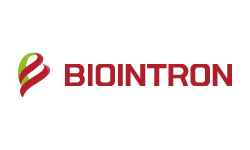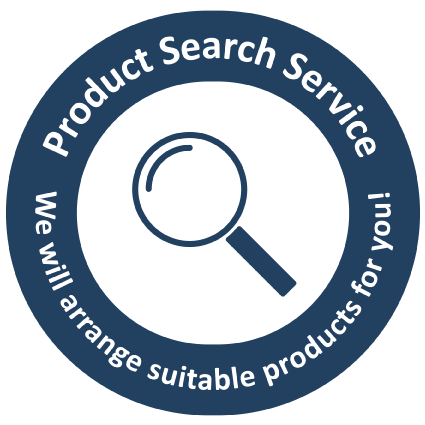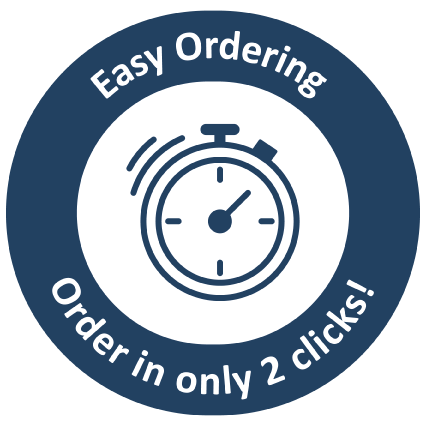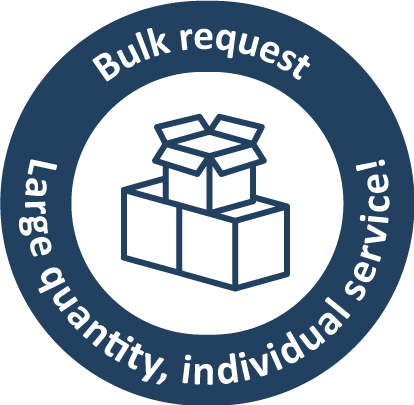Biointron

Biointron – Accelerating Your Antibody Discovery
Biointron was founded in 2012 with its headquarters in Taizhou, China and expanded in 2020, with additional offices in Shanghai and Wijchen, in the Netherlands. The company focuses on providing customized services and specializes in the production of biological reagents, mainly antibodies.
The vision of acceleration in antibody drug discovery, for biotechnology or biopharmaceutical companies is visualized in the company logo. More than 500 of these companies have already been served by Biointron. The qualification of the ISO-9001:2015 standard quality management system is an important trading base for many international companies.
Antibody discovery
Currently working on three different research projects, nanobody library creation, naïve human scFv library and hybridoma development.
Nanobody (VHH) library generation
Nanobodies, also known as single-domain antibodies (sdAb), are antibody fragments composed of a single variable domain (VHH) of an antibody. Nanobodies therefore differ significantly from conventional antibodies, mainly in their structure (much smaller) and their domains, as conventional antibodies consist of two variable regions (VH and VL). Despite the absence of the second variable domain, nanobodies are very stable. Furthermore, this gives them a hydrophilic side, which results in altered solubility. They are highly variable, easier to program and simpler and cheaper to produce than polyclonal antibodies. The possibility of using genetic engineering methods can improve the binding. Another major advantage is that nanobodies can bind in crevices and cavities at active sites whereas antibodies have a smooth surface and cannot bind well there. They are produced, among others, by camels, more precisely alpacas, and offer an attractive therapeutic antibody technology for cancer immunotherapy and other purposes.
Naïve Human scFv Library
Human antibody libraries can be prepared in display systems, phage display being the most widely used method for this purpose. It allows in vitro selection of human monoclonal antibodies (mAb) with almost arbitrary specificity and affinity. Biointron has a proprietary phage display platform in which multiple naïve donors increase diversity and performance potential. The display system can help companies screen potential antibody drugs.
Hybridoma Development
Hybridoma technology fuses antibody-producing B cells with myeloma (cancer cells), resulting in immortalized hybridoma cells. These in turn can produce highly specific monoclonal antibodies against a specific epitope. Desired cell lines can be cryopreserved for long-lasting mAb production.
Antibody Production
With the rapid advances in development and research in antibody technologies, a high-throughput process is necessary to ensure the fastest possible evaluation of antibodies in terms of their function, quality and molecular properties. This enables rapid production of large quantities of antibodies in HEK293 or CHO cells. The scaled-up production of recombinant antibodies in the milligram to gram range is possible in a short period of time.
Due to the expertise of Biointron, it is possible to produce bispecific antibodies according to customer specifications. Bispecific antibodies consist of components of two different monoclonal antibodies so they can have a hybrid structure. These antibodies consist of two different heavy chains, which means that two different antigens can be bound at the same time. In addition, a third binding site is formed at the Fc domain. To state an example, this feature allows the tumor cell binding site of the antibody to bind to the tumor cell antigen and simultaneously bind to a lymphocyte with the paratope against a lymphocyte antigen. An additional immune cell can bind to the third binding site. This complex formation is expected to improve immune activity against tumor cells.
Hybridoma sequencing allows for avoiding the disadvantages of a hybridoma cell line such as contamination. Thus, mAb can be produced by recombinant expression after sequencing of mammalian cells (HEK or CHO).
Animal-derived mAbs can cause immunogenic reactions, which may limit their use in humans. Humanized antibodies offer an alternative based on the CDR grafting and reverse mutation platform.
CHO-K1 stable cell line generation
The development of industrially interesting and efficient cell lines contributes significantly to drug development. By screening the produced antibodies, potential drugs can be discovered and further developed, e.g. for immunotherapies.
Biointron supports its customers with a stable cell line development service for bioproduction purposes, which proves to be efficient. Certified CHO-K1 cells are used for production.
Catalog Products
Biointron offers a wide range of products, which can be divided into different areas. Human coronavirus products (including Mouse anti Human IgM, Anti COVID19 N Protein,Human IgG1 and Recombinant Human DPP4/hFc Protein) represent the first category. Recombinant proteins divided into cytokines, immune checkpoints, Avi-tagged proteins and other fusion proteins form another product category. In vivo purity antibodies are divided into research grade biosimilar antibodies and isotype-control antibodies, e. g. anti-CD70 or anti-HEL-Human IgG1 LALA P329G isotype-control antibodies are mentioned here. Another product category is IVD raw material products, including anti-HBs mAb.
Search for products by Biointron
Biointron products by Product Category
Any other questions?
If you have any questions, we are always at your disposal.
If you have not found a product, just send us a request and we'll take care of the rest.
Feel free to use our online services for your request.
Our Online-Service







